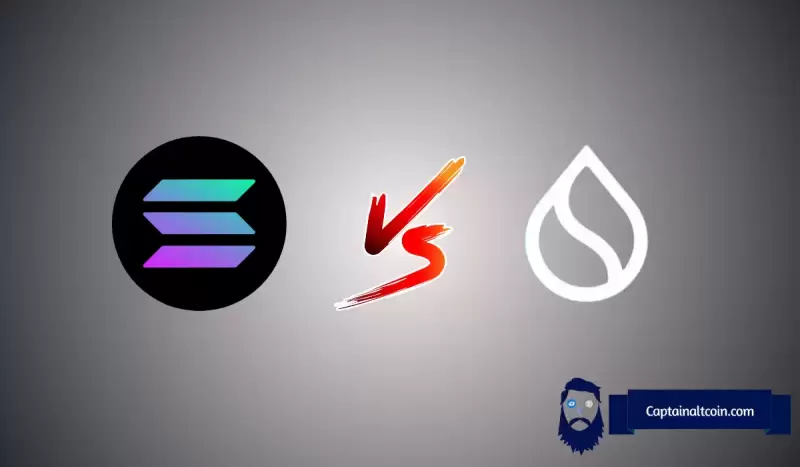 |
|
 |
|
 |
|
 |
|
 |
|
 |
|
 |
|
 |
|
 |
|
 |
|
 |
|
 |
|
 |
|
 |
|
 |
|
Cryptocurrency News Articles
Choosing the Right Crypto Wallet: Hot Wallets vs. Cold Wallets
Apr 12, 2025 at 04:10 am
Managing digital assets safely is essential for every crypto user. There are two main storage options: hot wallets and cold wallets.

In the evolving landscape of digital assets, safe management practices are paramount. Among the various facets of cryptocurrency maintenance, the choice of storage method is pivotal. Primarily, there are two main options: hot wallets and cold wallets. Each carries unique advantages and disadvantages, ultimately affecting how easily you access your funds and how securely they are protected.
A hot wallet, also known as a web3 wallet, remains connected to the internet. It's a software-based system running on your desktop, mobile device, or browser. This constant online presence is what defines a hot wallet. Due to its online nature, it offers easier access to your funds and allows for quick transactions.
On the other hand, a cold wallet is not connected to the internet. It's used to store crypto offline, which is known as cold storage. Most cold wallets are hardware wallets—physical devices designed for offline storage and keeping your crypto keys safe from hackers and malware. They are usually defined in contrast to hot wallets, which are software-based and stay connected to the internet.
Paper wallets are another form of cold crypto wallet, where keys are printed and stored safely offline. However, most users now prefer dedicated cold storage wallets like the Ledger series for better usability and durability.
This guide delves into the comparative analysis of hot and cold wallet setups, ultimately aiding you in selecting the most suitable crypto wallet for your specific usage patterns, risk appetite, and investment size.
What Is a Crypto Wallet?
A crypto wallet is used to send, receive, and store cryptocurrencies. It doesn't hold any coins—instead, it stores private keys, which are used to unlock access to your blockchain funds.
There are two types of keys:
• Public key: This is used to receive crypto. It's like a bank account number.
• Private key: Used for sending crypto and ultimately controls the associated funds. If someone gains access to your private key, they can steal your crypto.
This is why protecting your private key is crucial.
What Is a Hot Wallet?
A hot wallet is a software-based wallet that is always connected to the internet. It runs on your desktop, mobile device, or browser and can be used to manage one or multiple cryptocurrencies.
Since it's online, it offers easier access to your funds and allows for quick transactions. This makes hot wallets perfect for everyday use and they are common among traders, casual users, and anyone interacting with dApps or exchanges.
Some examples of top crypto wallets in this category include:
• Coinbase Wallet
• MetaMask
Atomic
Pros and Cons of Hot Wallets
Here are the major advantages and disadvantages of hot wallets:
Pros
* Easy setup and use
* Convenient for frequent transactions
* Can be used with dApps and exchanges
* Usually free to use
Cons
* Less secure than cold wallets as they are constantly online
* More susceptible to malware, phishing scams, and other online threats
* May require ongoing maintenance, such as software updates
Hot wallets are best suited for:
* Smaller crypto investments
* Traders who frequently buy and sell crypto
* Anyone who prefers convenience and ease of use
What Is a Cold Wallet?
A cold wallet is not connected to the internet. It keeps your crypto safe offline, ensuring your crypto keys are out of reach from hackers and malware. This method is known as cold storage.
Most cold wallets are hardware wallets—small, physical devices made for offline storage and designed to hold your private keys securely, even during transactions. They are usually powered by a single button and a small display. To use them, you connect them to a computer and approve each transaction manually. Only the signed transaction goes online—your keys stay locked inside the hardware device.
The most popular options include:
* Ledger Nano S Plus
*Trezor Model T
Paper wallets are another type of cold crypto wallet, where keys are printed and stored safely offline. However, most users prefer dedicated cold storage wallets like the Ledger series for better usability and durability.
Pros and Cons of Cold Wallets
The strengths and weaknesses of cold wallets include:
Pros
* Most secure storage method
* Immune to online threats such as phishing attempts
* Best for large crypto savings
Cons
* More difficult and time-consuming to set up
* Less convenient for regular transactions
* Some hardware wallets have a cost
The best users for cold wallets are:
* Long-term crypto holders who prioritize security
* High-net-worth individuals
* Anyone with a large crypto portfolio
Hot and Cold Wallets: Key Differences
Understanding the trade-offs between hot and hot wallets helps you manage crypto safely. Here’s a breakdown of the main categories:
1. Internet connection
Hot: Connected continuously.
Cold: Completely offline.
2. Convenience and access
Hot: Easier to set up and use. Better integration with dApps, exchanges, and DeFi protocols.
Cold: More
Disclaimer:info@kdj.com
The information provided is not trading advice. kdj.com does not assume any responsibility for any investments made based on the information provided in this article. Cryptocurrencies are highly volatile and it is highly recommended that you invest with caution after thorough research!
If you believe that the content used on this website infringes your copyright, please contact us immediately (info@kdj.com) and we will delete it promptly.
-

-

-

- Senator Who Bought Bitcoin BTC/USD ETF Shares Before Trump's Executive Order Added More Shares
- Apr 26, 2025 at 06:00 am
- A senator who bought shares of a Bitcoin BTC/USD ETF before President Donald Trump announced an Executive Order to establish Strategic Bitcoin Reserves has added more shares to his portfolio
-

-

-

- title: Metaplanet Adopts Bitcoin (BTC) Investment Strategy Pioneered by MicroStrategy
- Apr 26, 2025 at 05:55 am
- The Japanese public firm adopting the investment strategy pioneered by leading Bitcoin (BTC) corporate holder Strategy is now closer to reaching its goal of holding 10,000 of the flagship cryptocurrency.
-

-

-





























































